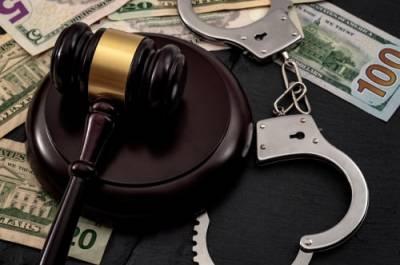What Are My Options for Paying for a Bail Bond?

When someone is arrested, they usually have the option to post bail to be released from jail while awaiting trial. However, the cost of bail can be quite high, and not everyone has the means to pay it upfront. In such cases, people can turn to bail bond services, which will usually allow them to pay a fraction of the bail amount and have a bail bondsman cover the rest. However, many people have limited financial options, especially on a short-term basis when a person needs to get out of jail as soon as possible. Raising the amount needed to pay for a bail bond may seem difficult. Fortunately, there are a variety of payment options that may be available.
Bail Bond Payment Options
There are a variety of factors that can influence the amount of bail a person must pay before they can be released from police custody. These include the severity of the offense they were arrested for, their previous criminal history, the potential danger they may present to people in the community, and whether they are likely to flee rather than appear in court during their case. In many cases, bail may be several thousand dollars, and for serious offenses such as violent crimes, a person may be required to pay tens or even hundreds of thousands of dollars.
Fortunately, when working with a bail bondsman, a person will usually only be required to pay 10 percent of the total amount of bail. However, for high amounts of bail, 10 percent can still be a large figure. A person's family members or friends may work to raise the necessary funds, and they may have a variety of options for covering the required amount, including:
-
Cash payment: The most straightforward option is to pay for the bail bond in cash. This means a person or their loved ones will need to come up with the full amount of a bail bond upfront. If the funds are available through a person's savings, donations from others, or the assistance of bail funds or other organizations, this may be the ideal option.
-
Credit cards: If cash is not immediately available, putting the amount of a bail bond on a credit card may be another way to pay. This can be a convenient option for those who have a credit limit high enough to cover the amount of a bail bond. However, it is important to remember that using a credit card could result in high interest charges if the balance cannot be paid off right away.
-
Personal loan: A person may consider taking out a loan from a bank or another lender to cover the cost of the bail bond. This can be a good choice for those who can qualify for a loan, but it is important to remember that loans come with interest and fees. The loan will need to be paid back over time, which can add to a family's financial burdens.
-
Property collateral: For those who do not have immediate access to cash that can be used to pay for a bail bond, they may be able to put up property as collateral instead. This could include the title to a home, car, or other valuable assets. The collateral can be held until other arrangements for payment can be made. In these cases, the property owner will be promising to forfeit the property if the appropriate payments are not made, including in situations where a person skips bail or does not meet the requirements put in place when they are released.
-
Payment plan: The amount of a bail bond may be paid off over time. This can be a good option for those who do not have the full amount available right away but will be able to make smaller payments over a longer period of time.
Contact Our Denton County Bail Agents
At Doc's Bail Bonds, we work to provide people with the easiest and most affordable options for paying bail and getting out of jail. We can accept cash payments, credit cards, or collateral. We also offer payment plans with no credit checks, ensuring that people who have been arrested or their loved ones will be able to pay bail quickly and easily. To learn more about how we can help you in these situations, contact our McKinney bail bond professionals at 214-747-4110.










